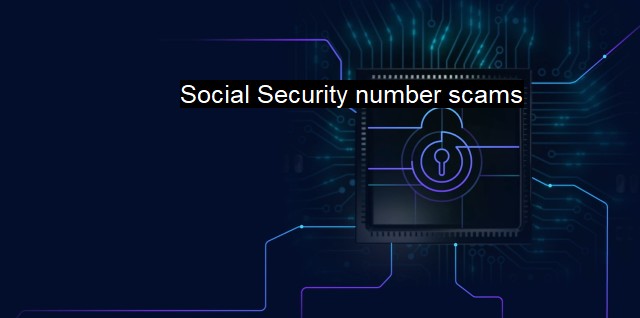What are Social Security number scams?
The Dark Side of Social Security: Unmasking Scams Involving Personal Information Vulnerability and Identity Theft
Social Security number scams have been on the rise in the digital era and constitute one of the most menacing threats in the cyber security world today. These frauds are sophisticated maneuvers hackers employ to trick users into revealing sensitive details about themselves, particularly focusing on their Social Security numbers (SSN). The hackers then apply this information for a number of illegal purposes including identity theft, fraudulent financial transactions, and other forms of personal exploitation.Cyber criminals direct these scams to make the targets believe that they are dealing with a reputable entity, typically a government agency, bank, or other trustworthy source. They achieve this through carefully constructed phishing emails, counterfeit websites, or robocalls that seemingly originate from legitimate institutions. The message delivered usually creates urgency for the target to act swiftly by invoking fear or offering enticing prospects.
Social Security numbers hold the key to plenty of personal information, including tax data, employment records, and credit history, making them a prime target for hackers looking to engage in illicit activities. Once an unprotected SSN falls into the hands of these hackers, there's no limit to the exploitation possibilities. They might pose as the individual and get access to bank accounts, start a business under their victim’s name, create fraudulent tax returns, even sell the number on the black market for those seeking to create a new identity.
To guard against such SSN scams, implementing robust cybersecurity measures becomes crucial. This includes installing reputable antivirus software on all digital devices. Antivirus software acts like a security guard, constantly monitoring for the hallmark signs of a scam in an effort to protect user data. It works by scanning the files in your system, cross verifying with its database of known viruses, and if it detects anything suspicious, steps are taken to isolate and neutralize the threat.
In correlation with antivirus software, it's essential to practice good cyber hygiene. Be skeptical of unsolicited phone calls, emails, or text messages asking for your personal or financial information. Hover over the email sender's address or any links they've included to confirm authenticity. Impersonators can use sophisticated techniques to make their emails and websites appear as though they're from reliable organizations. Remember - legitimate organizations, especially government agencies, never ask for sensitive personal information through unsecured channels.
Ensuring the software utilities and applications running on your devices are up-to-date is also crucial. Older versions of software might have vulnerabilities that criminals can take advantage of to steal personal data. On a similar note, securing your network with strong, unique passwords can provide an additional line of defense.
Personal awareness also plays a significant role in cybersecurity. The most advanced antivirus software is of little help if a user falls for a convincing scam and willingly provides their social security number. Keeping oneself educated about the tricks scammers use to manipulate victims can strengthen your defense against these deceptive practices.
Social Security number scams are a dangerous form of fraud, causing tremendous harm to individuals and organizations. As these scams continue to evolve, so must our defenses. This blends using reputable antivirus software and regularly updating it, practicing good cyber hygiene habits, and staying informed about the latest scams tactics. By doing so, you can significantly decrease the possibility of falling victim to these cyber threats and help create a safer digital world.

Social Security number scams FAQs
What is a social security number scam?
A social security number scam is a type of cybercrime where scammers trick people into giving them personal information, such as their social security number, through various means, such as phone calls, emails, or fake websites.How can I protect myself from social security number scams?
To protect yourself from social security number scams, you should never give out your personal information, especially your social security number, to anyone you don't know or trust. Also, be cautious of unsolicited calls, emails, or messages that ask for your personal information. Use antivirus software and keep it updated to avoid malware and viruses that can compromise your personal information.What should I do if I suspect that I have fallen victim to a social security number scam?
If you suspect that you have fallen victim to a social security number scam, you should immediately contact the Federal Trade Commission (FTC) and report the incident. You should also monitor your accounts, credit reports, and other financial information for any suspicious activity.Can social security number scams affect my credit score or finances?
Yes, social security number scams can affect your credit score and finances, as scammers can use your personal information to open new accounts, make unauthorized purchases, or commit identity theft. It's essential to act quickly and monitor your financial accounts, credit reports, and other sensitive information to minimize the damage caused by social security number scams.| | A | | | B | | | C | | | D | | | E | | | F | | | G | | | H | | | I | | | J | | | K | | | L | | | M | |
| | N | | | O | | | P | | | Q | | | R | | | S | | | T | | | U | | | V | | | W | | | X | | | Y | | | Z | |
| | 1 | | | 2 | | | 3 | | | 4 | | | 7 | | | 8 | | |||||||